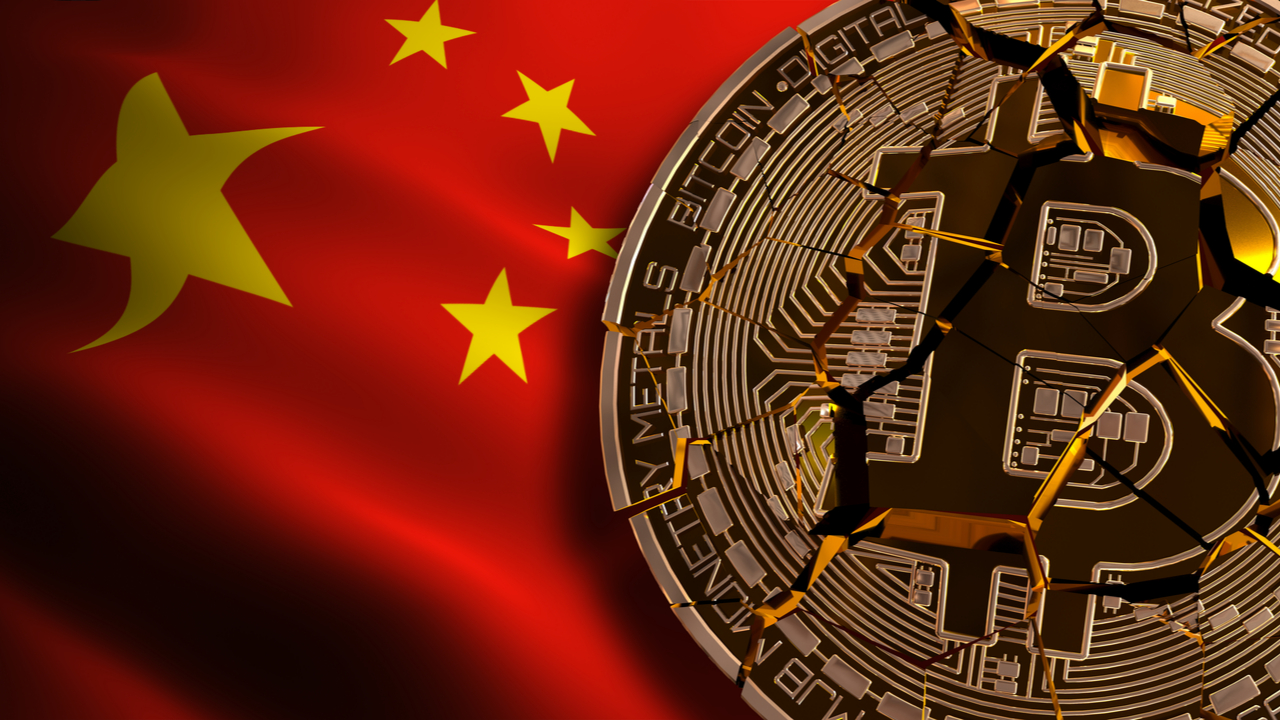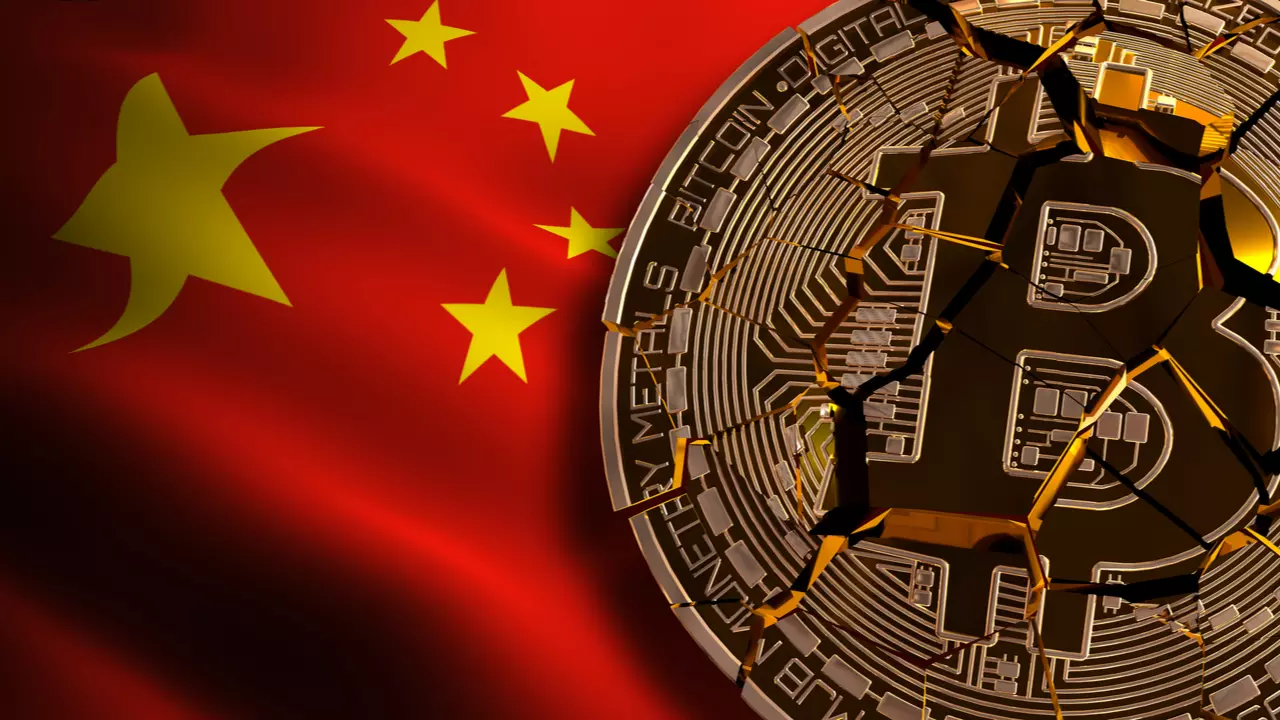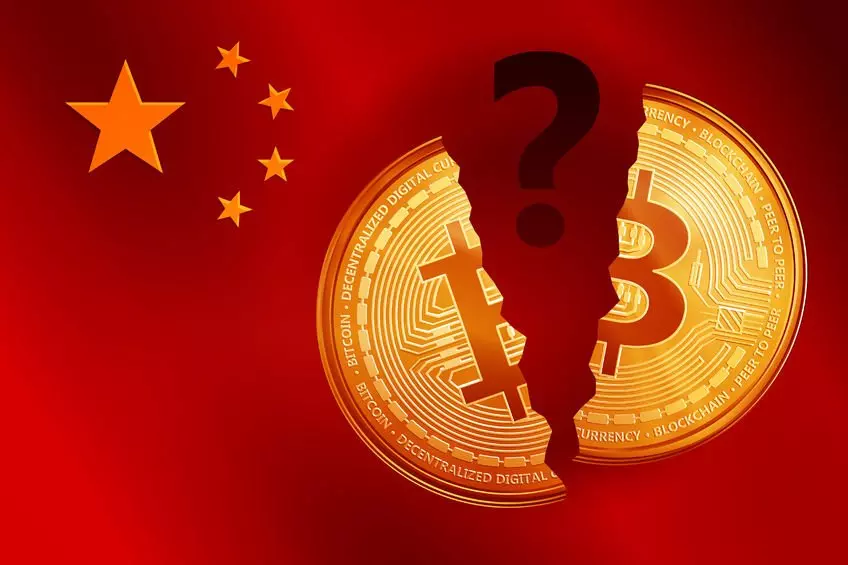Comments
- No comments found

The world, and more importantly digital assets, will survive China’s vendetta against cryptocurrencies.
Atthe zenith of China’s Ming dynasty, the Yongle Emperor sought to extend China’s influence beyond its borders, not just by demanding tribute from other rulers, but by building a massive navy.
Few will recall that at one time, China was a formidable maritime nation, with a long coastline and four-masted ships displacing in excess of 1,500 tons, a major technological accomplishment for the 15th century.
Ming China’s treasure fleets were legendary voyages, with far-reaching ocean sojourns that projected Chinese power and wealth to the known world.
These maritime exploits brought many foreign counties into China’s tributary system and sphere of influence, through both military and political supremacy, thus incorporating foreign states into the greater Chinese world order under Ming dynasty suzerainty.
But the death of the Yongle Emperor also saw the decline of China’s maritime ambitions.
The treasure voyages which were the hallmark of Chinese naval supremacy were discontinued and maritime prohibition laws were set in place banning the Chinese from sailing abroad.
European traders who reached China in the midst of the Age of Discovery were surprised when their overtures to trade were rebuked.
The Jiajing Emperor, who succeeded the Yongle Emperor, ignored domestic and foreign demands for overseas trade, eventually declaring trade illegal altogether, a shift that would herald the inevitable decline and eventual demise of the Ming dynasty.
Fast forward some 660 years later, and Beijing seems to have learned much about technology, but little when it comes to history.

Just five years ago, China accounted for 90% of the world’s bitcoin trade and its cryptocurrency exchanges were among the world’s best and most liquid.
Chinese entrepreneurs invented the application specific integrated circuit or ASIC cards that would come to define the standard for cryptocurrency mining hardware and until this spring, over half of the world’s bitcoin was mined in facilities within the Middle Kingdom.
For anyone who knows anything about cryptocurrencies, concentrating that much mining power within one country was always going to pose a threat to the very blockchain that was being secured.
Because blockchains work on a consensus mechanism, which requires a majority of the computers (miners) to agree on a singular version of the truth, a 51% attack could potentially be mounted where a nefarious actor takes over a majority of the mining power to validate fraudulent transactions, such as double-spends, thus undermining the integrity of that blockchain and devaluing its cryptocurrency.
Game theory would suggest that as long as miners are rational economic actors, they would not mount a 51% attack because by doing so, they would devalue the very cryptocurrency that they seek to exploit.
But what if a miner was not a rational economic actor, but a state or government with a vested interest to see to the demise of a cryptocurrency?
For years, one of the biggest worries when it came to bitcoin was that so much mining activity was concentrated in China, a concern that resolved itself as Beijing went about to purge its substantial cryptocurrency mining complex.
But it’s not just mining where China has had a head start.
According to data from blockchain analytics firm Chainalysis, in the first half of this year alone, some US$150 billion worth of cryptocurrency transactions were through digital wallets in China.
And the world’s largest cryptocurrency exchanges by market volume are all either founded by Chinese entrepreneurs who now make their homes in foreign lands which are more receptive to the digital asset class, or owned by Chinese investors.
From Beijing’s perspective, bitcoin’s existence presents a significant challenge to its authority, enabling Chinese citizens to skirt China’s strict capital controls that limit the transfer of wealth abroad to just US$50,000 a year.
Even within the confines of the Middle Kingdom, bitcoin and its ilk allow ordinary Chinese to transfer money or make investments away from the prying eyes of censors or authorities.
When Beijing first started its purge on cryptocurrency exchanges in 2017, they fled offshore, but loopholes have long allowed Chinese users to continue buying and selling bitcoin with a few added inconveniences inevitable.
OTC or over-the-counter service providers happily swapped China’s renminbi in exchange for bitcoin or other cryptocurrencies and charged a handsome premium for their troubles.
For the longest time, USDT or Tether, was the favorite stablecoin of the Chinese looking to spirit assets far from the shores of the Middle Kingdom.
But the latest purge by Beijing has been of such an extent that websites and apps which had thus far been happy to serve Chinese users are now cutting them off.
In September, China’s central bank, the People’s Bank of China (PBoC), declared that all cryptocurrency-related transactions would henceforth be deemed illegal.
But while the pronouncement was nothing new, the PBoC also highlighted that the latest crackdown on cryptocurrencies would be an inter-agency effort, from law enforcement to the banking watchdog, any remaining loophole for cryptocurrencies to be transacted in by the Chinese would be effectively shut.
According to the PBoC,
Those who carry out related illegal financial activities (that) constitute a crime shall be investigated for criminal responsibility in accordance with the law.
The provision of services by overseas virtual currency exchanges to Chinese residents through the internet is also an illegal financial activity.
National regulators, including the Central Cyberspace Administration, that oversees (and censors) Chinese internet traffic, the Supreme People’s Court, the Ministry of Industry and Information Technology and the Ministry of Public Security, were just some of the major government departments that would be roped in to weed out cryptocurrency activity in China.
And while it remains possible for Chinese users to send bitcoin to each other, which validates the resilience and censor-resistance of the blockchain, the bigger question is whether the Chinese will continue doing so, especially since Beijing has so far been deft at marginalizing ideas that don’t fit its narrative.
But while Beijing may be able to build a wall, whether physical or cyber, around its citizens, it cannot stop the advance of human development.
Almost as soon as the PBoC declared that cryptocurrency transactions were illegal, U.S. Federal Reserve Chairman Jerome Powell responded by reassuring everyone that the world’s premier central bank had no interest in banning digital assets.
To be sure, even though piecemeal regulatory action of the sort mounted by the U.S. Securities and Exchange Commission may irritate cryptocurrency industry players, even it’s Chairman Gary Gensler has made certain that cryptocurrencies ought not be banned.
Juxtapose Washington’s openness to cryptocurrencies (albeit with a strong desire to regulate) with Beijing’s approach, and the Ming dynasty’s insular years that prefaced its eventual decline come to mind.
Although Ming China decided it didn’t want to trade with the rest of the world, the rest of the world decided that it wanted to continue trading with one another.
China’s history is marked by periods of growth and prosperity, leading to a sense of superiority, followed by a season of insularity and inevitable decline — China becoming the world’s second largest economy was not an inevitability.
Right until economic reforms by Deng Xiaoping, it was not a foregone conclusion that China would become an economic and global superpower.
Yet once again, China is falling back into a familiar path of development that is synonymous with its history, building up its navy (yet again), offshore bases to assert its sovereignty, and closing off its borders (the internet) to outside influences.
When the 13th century European explorer Marco Polo discovered the Silk Road and its treasure, and saw the splendor of the Chinese empire, he lamented how backward his home continent was in comparison.
The Chinese had roads and texts, paper currency and porcelain, they wore fine silks and lived in gilded cities.
Little did Marco Polo realize that as soon as the Chinese shut the door on trade and the free exchange of ideas, they would soon be catching up to other civilizations.
Unlike borders the blockchain can’t be blockaded like the Chinese coastline, nor can Beijing quell a desire for cryptocurrencies the way the Ming dynasty landlocked seafarers by imperial decree.
For years, large cryptocurrency exchanges have hosted their operations, web servers and staff offshore, making them fiendishly difficult for even the most determined regulators to control.
Cryptocurrency exchanges and service providers are often able to bypass local rules and regulations by allowing customers to come to them, instead of soliciting their custom.
And the widespread use of VPN software, which can make IP addresses appear to come from a different country, have for years assisted the Chinese in their outbound internet traffic and flummoxed even the most determined of Chinese censors.

Although Binance, one of the world’s largest cryptocurrency exchanges, is infamous for serving all but being headquartered nowhere, the practice is by no means peculiar to the company (if it can even be called that).
Because rules vary by country, insofar as Chinese citizens are determined to gain access to offshore cryptocurrency exchanges, they can, and more often than not, they will.
Unlike YouTube, Facebook, Amazon and Google, all of which are banned in China, but which the Chinese have functional equivalents of, there are no Chinese “equivalent” cryptocurrency exchanges.
Unlike with other technologies, China isn’t looking to build a firewall so that it can develop its own cryptocurrency industry, Beijing is cracking down on what it has been ascertained as a threat to the Chinese Communist Party.
So great a threat are cryptocurrencies perceived to pose, that China remains the only large economy in the world to have launched its very own central bank digital currency, lest the Chinese people desire one, and finding none available, adopt cryptocurrencies instead.
Former U.S. President Bill Clinton once famously joked that China trying to censor the internet would be like trying to nail Jell-O to the wall and laughed that he would like to see the Chinese try.
Fast forward several decades later and not only is Beijing highly adept at filtering out “undesirable” content, it leads the world in internet censorship, with “objectionable” terms scrubbed from the digital lexicon at unfathomable speed.
Decentralization however is far more tricky.
As it is, centralized exchanges like Binance are proving to be like hydras for authorities.
While laws vary from country to country, regulators for the most part are unable to directly enforce restrictions on the types of financial transactions residents can perform outside their borders.
Many authorities have had to resort to issuing warnings to investors indicating that the services offshore cryptocurrency exchanges provide are not officially sanctioned and that their activity is unprotected.
But even though Cayman Islands-registered Binance has been subject to several investor warnings from jurisdictions like the United Kingdom, Italy and Japan, authorities have conceded that there is little that they can do.
In June, the United Kingdom’s Financial Conduct Authority admitted that it had limited capability to censure Binance’s offerings to U.K. residents, and on its part, the cryptocurrency exchange did post a warning to U.K. users on its website.
And even if centralized cryptocurrency exchanges are somehow stymied, regulators, whether from Beijing or Brussels, will struggle when it comes to decentralized exchanges, where users interact directly with each other sans intermediary and for whom there are no immediate targets to regulate.
Decentralized exchanges exist on the blockchain purely as smart contract code, and in many cases, the developers, once they have let loose these software programs on the blockchain, can no longer reign them in.
Smart contract users move seamlessly in and out, barely leaving a trail of dust from their dalliances, let alone verifiable identities or source of funds.
The unfortunate reality is that just like the Ming dynasty’s early treasure fleets, China had a big head start on the rest of the world when it came to cryptocurrencies and it could have used that significant mining and exchange power to dominate the space.
Instead, by closing off its borders and deciding to push its best and brightest cryptocurrency operators offshore, China has untethered its massive fleet and set it adrift from port, rudderless.
Had Beijing wanted to eradicate Bitcoin completely, it could have attempted such a move when the majority of mining power was within its borders, but alas that ship has now sailed.
Patrick is an innovative entrepreneur and a lawyer passionate about cryptocurrencies and the business world. He is the CEO of Novum Global Technologies, a cryptocurrency quantitative trading firm. He understands the business concerns of founders and business people helping them to utilise the legal framework to structure their companies to take advantage of emerging technologies such as the blockchain in order to reach greater heights. His passion for travel, marketing and brand building has led him across careers and continents. He read law at the National University of Singapore and graduated with Honors in the Upper Division and joined one of Singapore’s top law firms, Allen & Gledhill where he was called to the Singapore Bar as an Advocate & Solicitor in 2005. He created Purer Skin, a skincare and inner beauty company which melds the traditional wisdom of ancient Asian ingredients such as Bird's Nest with modern technology. In 2010, his partner and himself successfully raised $589,000 from the National Research Foundation of Singapore under the Prime Minister’s Office. He has played a key role in the growth of Purer Skin from 11 retail points in Singapore to over 755 retail points in Singapore and 2 overseas in less than a year. He taught himself graphic design, coding, website design and video editing to create the Purer Skin brand and finished his training at a leading Digital Media Company.
Leave your comments
Post comment as a guest